The most likely reason for cats pooping on the floor is that their litter box is overly dirty.
The same behaviour can occur in some health conditions, though, so if your litter tray isn’t the problem, you should take your cat to the vet.
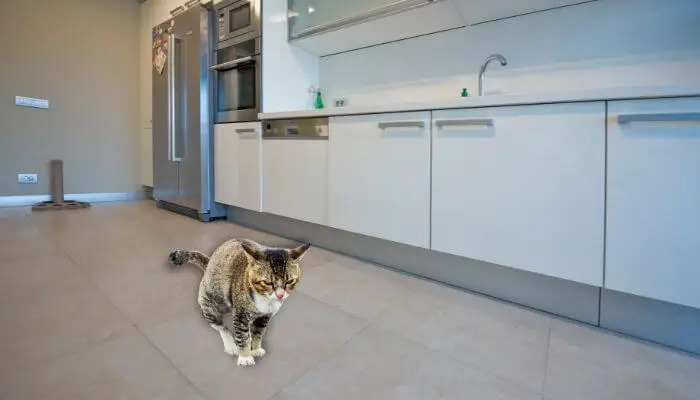
Contents
Reasons Why Your Cat may Poop On The Floor:
1. Dirty Litter Tray
You should make it a priority to clean your cat’s litter box every day.
Some litters, such as silica ones, can be left in the tray for a week or even more (depending on the amount you’ve placed in it).
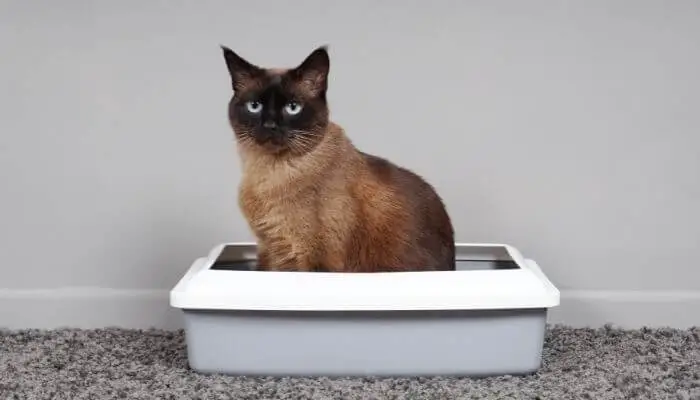
But even with that in mind, you should make a daily habit of scooping out your cat’s poop from the litter so that they don’t get the feeling they’re peeing or pooping in a filthy substrate.
There’s also the possibility that your cat might not have been fully litter trained — which can be the case if they’re still a kitten.
If you’ve recently adopted them, your pet might also not feel comfortable enough with your home or the litter box just yet, so they’ll try to find a more appropriate spot to relieve themselves in.
They might also not like the location of the litter box per se, such as if it’s placed too close to their food or water bowl.
2. Health Complications
Inappropriate elimination can be common in a number of diseases, but if they are related to the urinary tract, your cat is going to pee, not poop, in various places.
Pooping in undesired spots across your home happens in specific situations, such as when your cat has developed gastroenteritis, and they literally can’t hold it in until they reach the litter box.
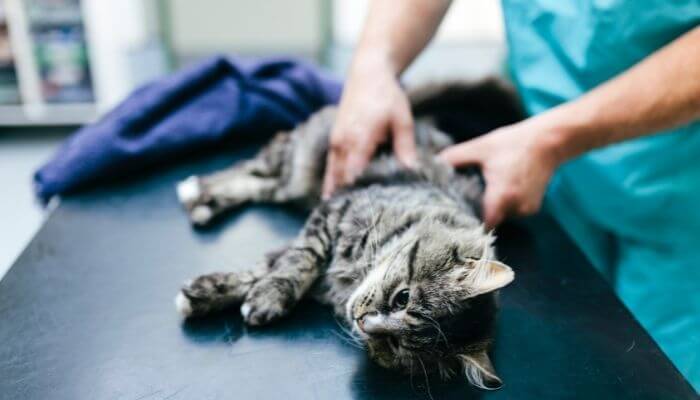
They might have an episode of explosive diarrhoea because they’ve ingested something they weren’t supposed to eat.
But they can experience the same if they’ve come in contact with a cat that was a carrier of a virus and, therefore, a potentially life-threatening infectious disease.
Some examples of health conditions that cause diarrhoea and, consequently, inappropriate elimination are listed below:
- Viral diseases like Feline Panleukopenia or Feline Coronavirus
- Parasites such as Ascaris spp.
- Bacterial infections such as those with Clostridium spp, Salmonella spp, or Campylobacter spp
- Fungal infections involving Histoplasma spp
- Protozoal infections such as Isospora spp, Giardia spp, or Cryptosporidium spp
These are all conditions that can easily pass from one animal to the next if they haven’t been immunised against the pathogen or if they have a low immune response (vulnerable cat categories include kittens, pregnant cats, and seniors).
Non-infectious causes range from diet changes to dietary allergies and inflammatory bowel disease.
3. Stress
Cats aren’t the best stress-resistant pets in the world, and they have various ways of showing their discontent to their owners.
One of them is by pooping in all the wrong places. They can do it because they are scared, anxious, or worried that things are not going to get back to normal.
But they can also do it out of spite.
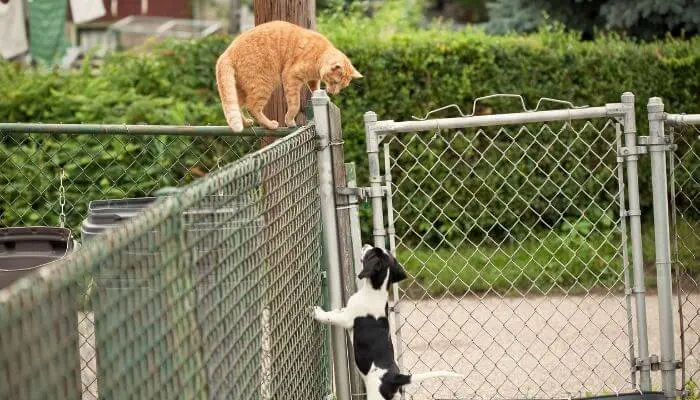
Some pet owners and veterinarians may think this is a myth, but when your cat poops in your bed or on the floor right in front of your bed when you leave them alone for a long time, it can’t be a coincidence.
Some cats suffer from separation anxiety. If you’ve worked from home ever since adopting your pet and now you’ve started going to the office, your cat will not be pleased.
Finally, the most common reason for cats being stressed and pooping on the floor instead of their litter box is when you move homes.
Cats take some time to become comfortable and mark their territory again, but once they do, they’ll restart using the litter box.
4. Insufficient Litter Boxes
Do you have two or more cats in your household?
If that’s the case you ought to have three or more litter boxes placed in various spots in your home.
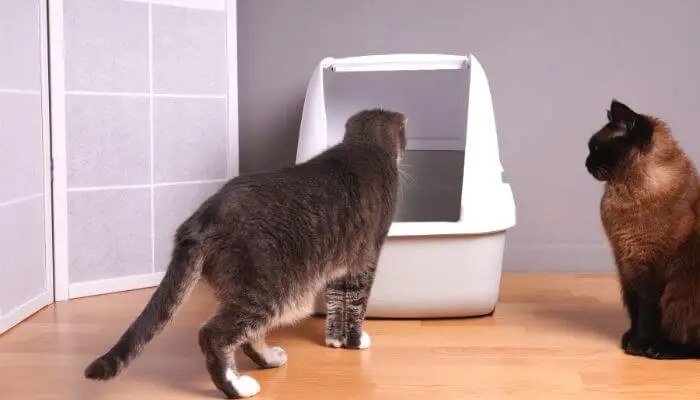
Some cats tend to mark their specific litter box and keep using it forever.
But when it’s dirty, and the other one belongs to their companion, they have no place to go, so they’ll find a spot on the floor to be more convenient.
All litter boxes have to be cleaned on a regular basis. The more cats you adopt or buy, the more litter boxes you should get.
5. They Don’t Like The Cat Litter
Many cats do not have any preferences when it comes to their litter substrate, but some can be extremely picky.
For example, some cats might find it highly uncomfortable to use clay litter, and that’s because it’s dusty, and its small particles tend to stick to their paws — in some cases, even to their fur.
Other cats do not like biodegradable litter options such as those made from paper because they tend to retain moisture, so they will come out of the box with their paws still damp.
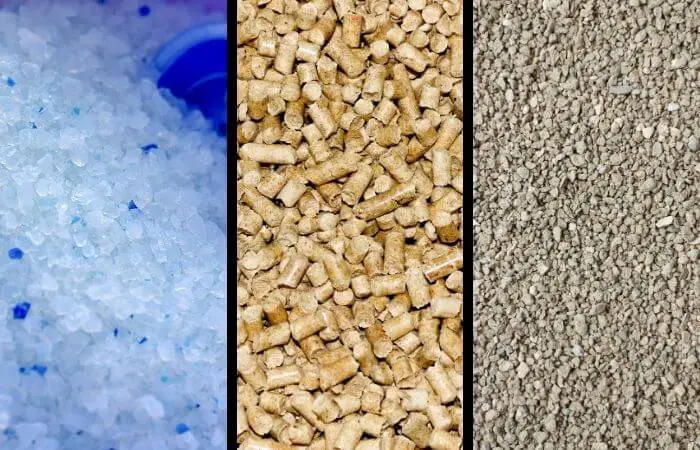
If you’re trying to use scented litter, stop.
Most cats are actually put off by strong smells, and the artificial ones in such varieties can convince them to avoid the tray altogether.
It can take some time for you and your cat to find the right litter, but you’ll get there with a little patience.
But until that happens, your cat may decide not to use the litter box and may poop on the floor instead.
Why is my elderly cat suddenly pooping on the floor?
1. The litter box isn’t as comfortable as it used to be
As you can probably imagine, senior cats have some health complications similar to humans as they age.
One of these is arthritis.
It affects all elderly animals, regardless of the species, so your own cat is going to experience it as well.
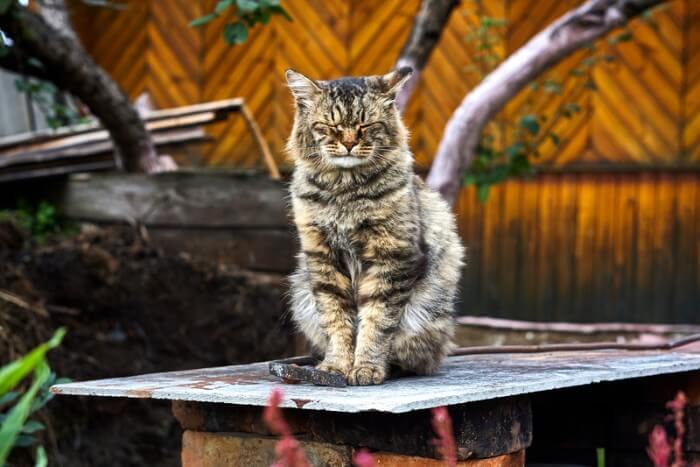
If your cat finds it difficult to step into or jump into the litter box or tray (due to joint pain or stiffness), they will have to relieve themselves elsewhere.
Consider changing your litter box to see if this helps.
2. Your cat may have a mild cognitive dysfunction
Cognitive dysfunctions are common in both elderly cats and dogs.
They are what we would call dementia or Alzheimer’s disease in people, and while some cats might not experience severe symptoms, they will become more forgetful in their senior years.
They might also become more withdrawn or used to spending time in specific places in your home, which might just not include the litter box.
3. Your cat has a health condition that makes using the litter box difficult
Some of the following medical issues can lead to your senior cat experiencing inappropriate elimination:
- Intestinal cancer
- Poor vision due to cataracts (very common in elderly animals)
- Any type of trauma
- Inflammatory bowel disease
- Food allergies
How to stop your cat from pooping on the floor
1. Clean urine & poop up with an enzymatic cleaner
When a cat poops somewhere else besides their litter box, they automatically mark that spot as a good place for relieving themselves forever.
Consequently, you have to go out of your way to remove your cat’s marking from the floor.
Sometimes, this might require you to use harsh cleaning agents such as vinegar.
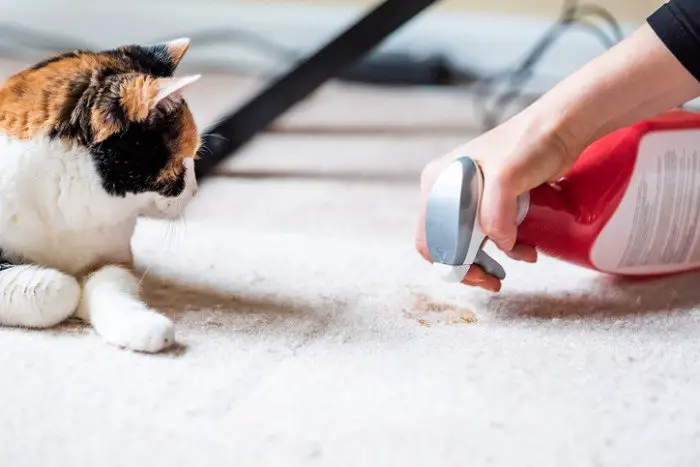
But if you do not want your pet to be bothered by the smell, you can use an enzymatic cleaner over the surface and give it a good rinse and wipe afterwards.
If you feel like you need to, you can clean that spot thoroughly and repeatedly, sometimes three times in a single day – just to make sure your cat’s smell has completely disappeared.
2. Give them a second litter box
This is a great piece of advice if you live in a multi-cat household.
But even if you don’t and you think that your cat just got tired of their good old litter box, you should switch things up a bit and add an extra one.
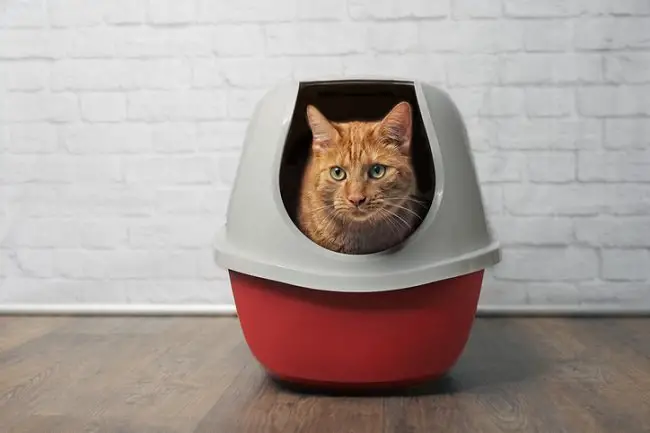
That way, if you forget to clean one when you’re in a hurry and on your way to work, at least there will be an alternative.
3. Clean the litter box more frequently
Once a day is ideal, but if you can’t keep up with this cleaning routine, at least once every two days is the norm here.
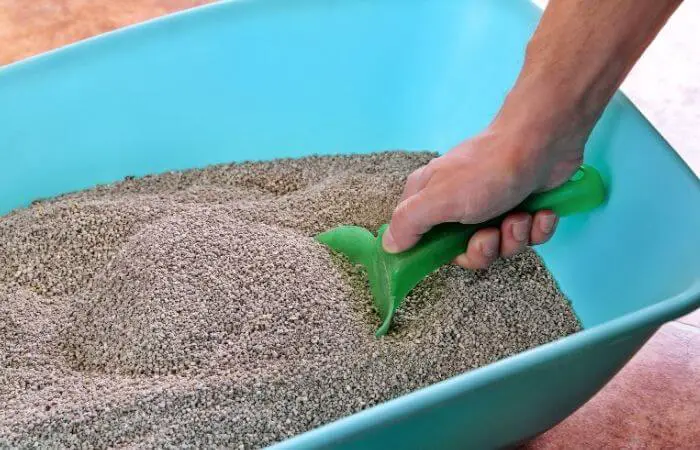
Cats are very clean animals, something evident by how much they groom their bodies — so they’re likely to positively hate peeing and pooping in a dirty substrate.
4. Try a different type of litter
The sky’s the limit these days when it comes to the litter types you can try.
You can opt for more traditional choices such as silica ones, or you can choose a more eco-friendly variety such as one made from tofu, corn, walnut, bamboo, or a combination of these materials.
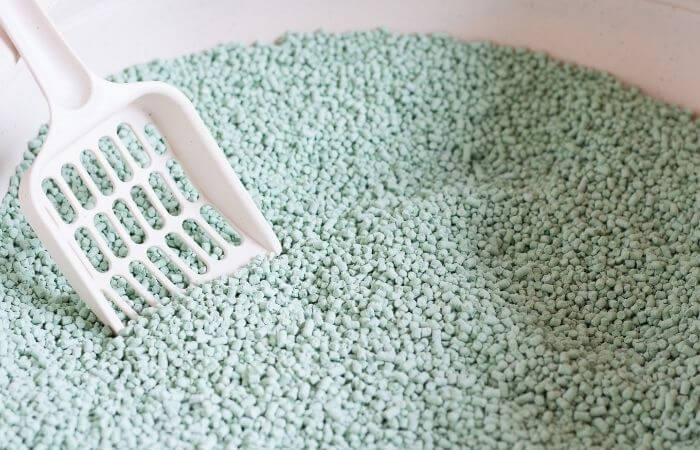
Although they might be biodegradable and, therefore, safe for the environment, we suggest avoiding pine pellet cat litter or any varieties that can release sawdust.
These can lead to your cat developing serious respiratory conditions, including asthma.
If you try all of these, you will be able to tell which one your cat prefers resulting in them using the litter box.
5. Minimise anything stressful in your cat’s life
It can be impossible to perfectly manage seasons of life such as completely changing homes or even moving to another country with your cat, but there are some ways to make things better for your pet.
Talk to your veterinarian about what options you have in terms of calming your cat if they are overly anxious.
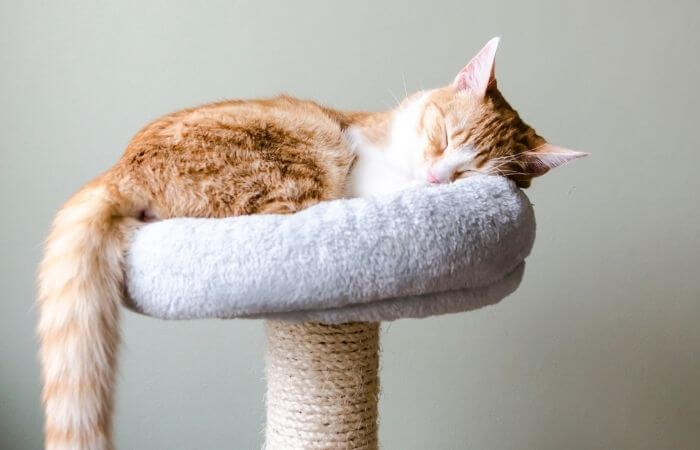
You may need to use a cat pheromone diffuser, a Thunder Jacket, or good old catnip.
Other choices also exist, such as no-stress collars and even getting your vet to give your cat a mild sedative when a stressful moment approaches.
Preventing your cat from becoming nervous will make it possible for them to continue using their litter box as per their usual habits.
6. Change Their Diet
Cats that experience dietary allergies are more likely to poop anywhere than those that are on the right diet for their needs.
This might mean that you have to take your pet to the vet to find what they are intolerant or sensitive to in terms of their food ingredients.
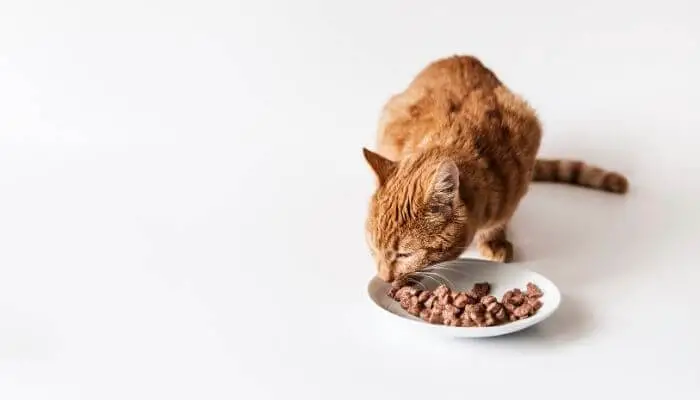
Hypersensitivity to protein or carbohydrate sources can be quite common in cats and can also result in inappropriate elimination.
7. Get Health Issues Treated
We’ve previously mentioned some of the medical problems that can result in this type of behaviour in cats.
Nothing beats prevention when it comes to this species, and that’s because cats rarely show any signs of disease until it may have progressed to the point that treatment is made difficult.
Making sure that your cat is seen by a vet once or twice a year can help you manage these situations as best as possible.
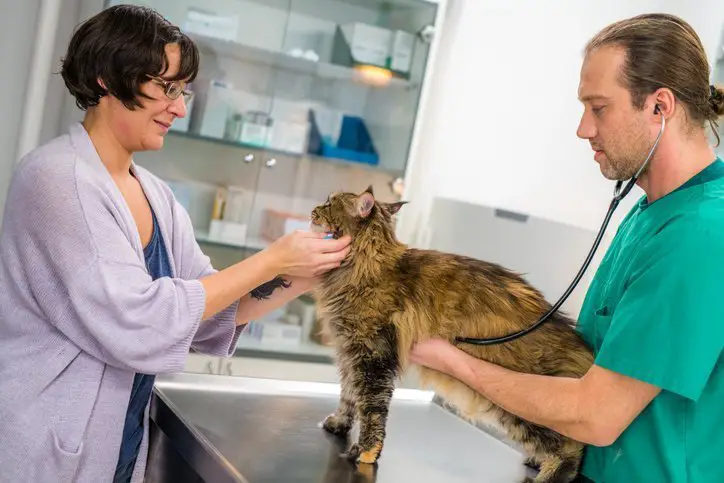
Three or four times per year is even better if your cat is a senior (over the age of 7-8).
Also, if you change your litter, litter tray, buy an additional one, and even change your cat’s diet, and nothing seems to work, we urge you to take your pet to the animal hospital.

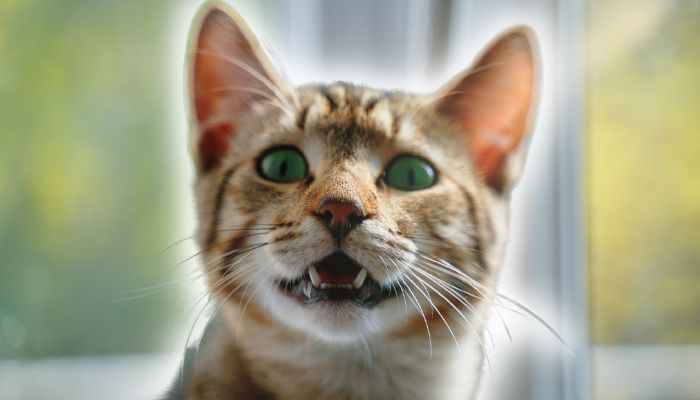
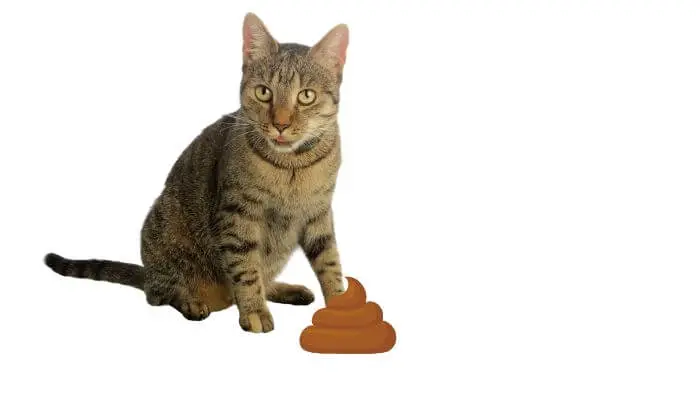
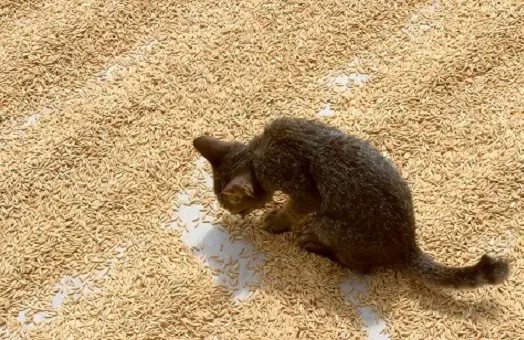


Leave a Comment